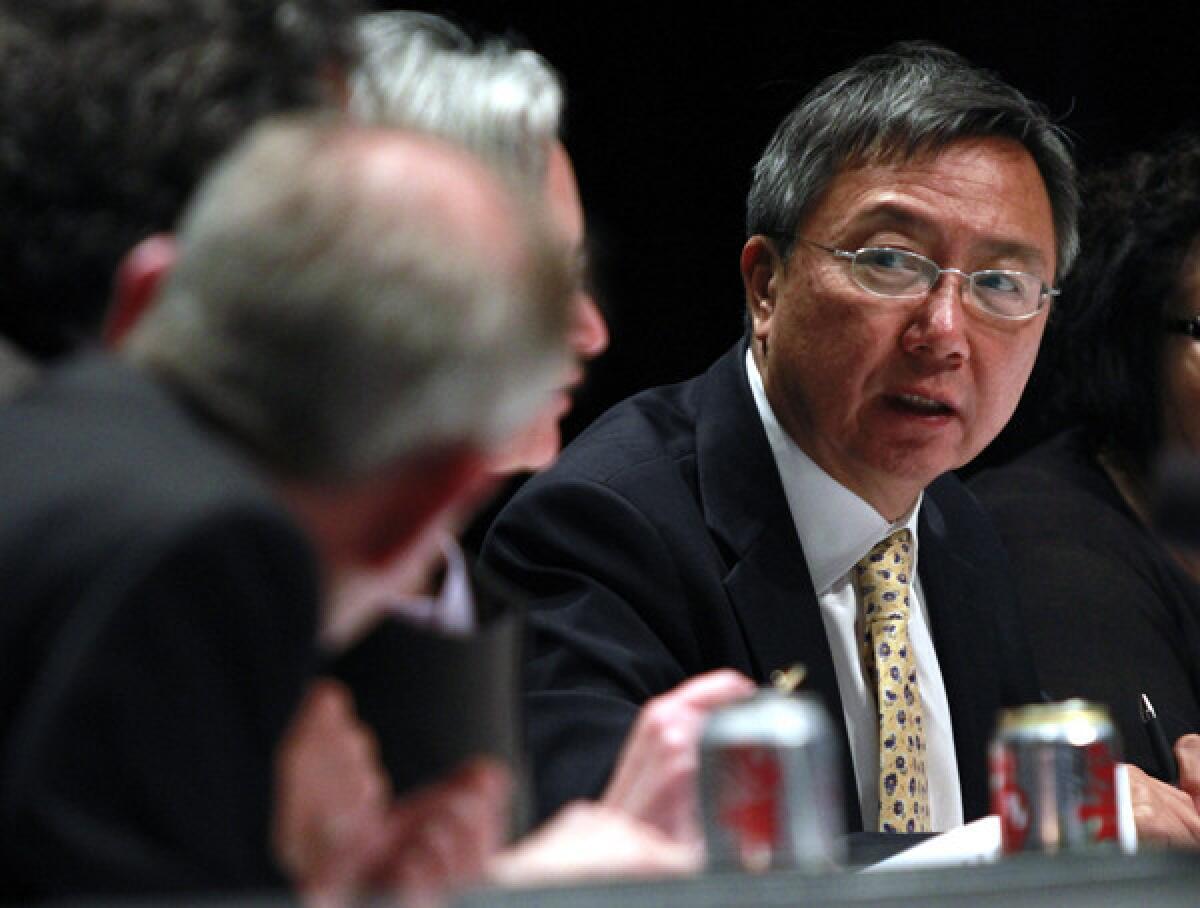Santa Monica College to offer two-tier course pricing

- Share via
Santa Monica College reversed course Friday, canceling a two-tier fee program that had sparked student protests, opposition from the state’s community colleges chancellor and national debate about the mission of public institutions.
The Board of Trustees voted unanimously to postpone implementation this summer of the dual-fee plan and to gather wider input from students, faculty and staff on how best to increase access to classes -- which have suffered drastic reductions in recent years because of state funding cuts.
The vote came after more than three hours of often-impassioned public comment at the 34,000-student campus, which has a reputation for innovative programs that become models for other colleges.
The issue erupted when police used pepper spray outside a board meeting Tuesday to disperse protesters demanding a campus-wide referendum on the tuition plan.
College President Chui L. Tsang called for the special Friday meeting after speaking with Chancellor Jack Scott, who voiced concern about the pepper-spraying incident and reservations about the plan and its legality.
The chancellor said that the plan to charge more for some high-demand, core courses such as English, math and history violates state education codes; he has asked the state attorney general to weigh in.
Following the trustees’ vote, Tsang said he hoped the postponement would provide an opportunity to educate students about the merits of the concept and work with the chancellor to iron out differences over interpretation of state statutes.
“I hope we can come up with a plan to help all of those who are concerned gain a greater understanding of how this will operate and how this will supplement existing classes,” Tsang said. “With complete knowledge, we can engage in fruitful discussion about the merits or demerits.”
In a statement, Scott said he appreciated the decision to delay implementation of the dual-fee plan.
“Although I disagreed with this proposal, I cannot fault college leaders for searching for new approaches to serve students hungry for the opportunity to receive a college education,” Scott said.
“Tragically, we as a state have failed to properly fund community colleges, and our economy will suffer as a result.”
Santa Monica’s plan would have created a nonprofit organization to offer 50 classes in popular courses such as accounting, astronomy, English composition and psychology at a cost of about $180 per unit.
Those classes were to supplement the 700 state-funded classes offered at $46 per unit. California residents would pay about $540 for a typical three-unit course, and nonresidents would pay about $840.
The regular state-funded classes will still be offered this summer.
College officials argued that the plan, believed to be the first of its kind in the nation, would allow more students to enroll in classes they need to transfer to four-year-universities and graduate.
Some students agreed and said the board’s decision to back down was unfortunate.
“This offers an inventive way for students to reach their goals faster,” said DJ Davids, a business administration major who is a member of the student government.
“I support the decision of the president, but a lot of students will be set back.”
But many others argued that the plan would shut out low-income students and lead to the privatizing of public education.
“I think it was the appropriate decision...to keep the campus community intact,” said Luis Gomez, 20, a political economy major.
“It was unfortunate what happened on campus Tuesday, because that was never our intent. But the miscommunication between [students and administrators] on campus now demands explicit communication.”
Tsang announced at the meeting that Santa Monica campus police were conducting an internal investigation of the pepper-spraying incident.
He also has appointed an independent panel of faculty, students and staff to review the police response.
More to Read
Sign up for Essential California
The most important California stories and recommendations in your inbox every morning.
You may occasionally receive promotional content from the Los Angeles Times.











